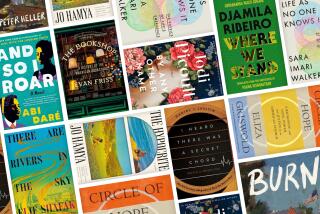What makes a successful book proposal? Publisher lets public weigh in
If youâve ever thought about writing a book, and wondered what a successful proposal looks like, wonder no longer.
In a unique experiment, the publisher Palgrave Macmillan is posting proposals for nonfiction, academic titles, and inviting the public to comment on them. The publisher is also posting chapters from the proposed books -- all of which have been already accepted for publication. The books take on a wide range of topics in the social sciences and humanities, and include titles on ârace and the Brazilian body,â horror cinema, and the German revolutionary Rosa Luxemburg.
âForms of open and interactive peer review are now widely used in science publishing, but are still rare in the humanities and the social sciences,â Palgrave Macmillan wrote on its website. âThis will be the first trial to invite open comment on and review of scholarly book proposals, and the first to investigate how open peer review can contribute to the development of scholarly books at such an early stage in the writing process.â
Carrie Calder, Palgrave Macmillanâs director of market development, told the British journal the Bookseller that: âWe see this experiment as an opportunity to contribute to the emerging debate on opening up the closed peer review system, and increasing transparency in academic publishing.â
During the six-week experiment, which launched last week, readers can access the original book proposals, peer review comments and sample chapter. Professor Delia Poey at Florida State University began her proposal for âCuban Women and Salsa,â with a simple declarative sentence: âAlthough Salsa as a musical phenomenon has garnered academic interest from various disciplines in the last fifteen years, the contributions of female performers has been largely ignored.â She proposed to write about the pioneer singers Rita Montaner and Celeste Mendoza, and also about the legendary Celia Cruz.
Chapter Two of Poeyâs book has a more lyrical tone. âLong before the word Salsa came to refer to music, there was son, and alongside son there was rumba.â
Other books in the experiment include titles on digital culture and European asylum seekers.
ALSO:
A look inside the L.A. Art Book Fair
âTriple Packageâ poses a triple offensive threat
Finding a Guatemalan village -- in Germanyâs book mecca
More to Read
Sign up for our Book Club newsletter
Get the latest news, events and more from the Los Angeles Times Book Club, and help us get L.A. reading and talking.
You may occasionally receive promotional content from the Los Angeles Times.










